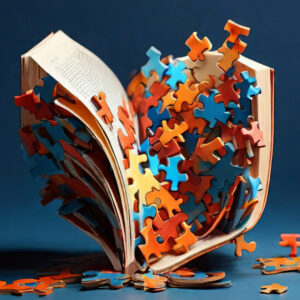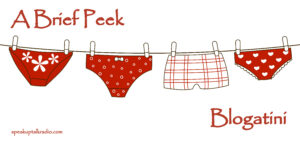Can Understanding Your Readers Make You a Better Writer?

Understanding why readers are drawn to specific genres offers valuable insights into their interests and personality traits and provides a practical roadmap for adapting your writing. By acknowledging how different genres mirror individual characteristics, you can tailor your writing to better resonate with your audience, thereby enhancing the impact of your work.
Mystery/Thriller
A person who enjoys reading mystery and thriller novels may have a curious and analytical mind that drives them to delve deeper into the intricate layers of a suspenseful narrative. The challenge of unraveling a complex puzzle woven by the author can be exhilarating, as each clue, twist, and turn in the plot keeps them on the edge of their seat.
The thrill of following the protagonists as they navigate through a web of deception and danger is an immersive experience for the reader. The tension and suspense created by the characters’ unknown motives, the unexpected plot twists, and the looming sense of a hidden truth waiting to be revealed all contribute to the adrenaline rush that comes with reading a well-crafted mystery or thriller, making it a truly gripping experience.
The satisfaction of piecing together the clues scattered throughout the story, connecting the dots, and ultimately solving the mystery is intellectually stimulating and deeply gratifying for someone who appreciates the challenge these genres offer. The sense of accomplishment that comes with deciphering the secrets and uncovering the truth mirrors the thrill of solving a real-life puzzle, making the experience both exciting and mentally engaging.
Romance
Individuals drawn to romance novels are often romantics at heart, valuing emotional connections and relationships above all else. They delight in the fantasy of true love, the belief in soulmates, and the idea that love can conquer any obstacle. They find comfort and escape in the immersive worlds created by romance authors, where even the most complicated love stories can have a happy ending.
Readers of romance novels are often highly empathetic, able to put themselves in the character’s shoes and experience their emotions alongside them. They may dream of sweeping romantic gestures and the intense feelings of falling in love. The emotional rollercoaster of reading a romance novel can provide a sense of catharsis for these individuals, allowing them to lose themselves in a world where love always triumphs.
Moreover, individuals who gravitate towards romance novels may believe in the power of love to transform and heal, finding solace in the idea that no matter how difficult life may be, love is always worth fighting for. They may be drawn to various romance sub-genres, from historical romance to contemporary romance, paranormal romance to romantic suspense, each offering a unique blend of passion, drama, and happy conclusions.
Science Fiction/Fantasy
Science fiction and fantasy genres attract readers who are drawn to the unknown, the speculative, and the imaginative. These readers thirst for exploring new worlds, whether they be distant alien planets, magical realms, or advanced futuristic societies. They are often intrigued by the possibilities of technology, magic, and supernatural forces that transcend the limits of our reality.
Science fiction and fantasy readers tend to have a vivid imagination and a love for immersive storytelling. They enjoy stepping into the shoes of characters who face extraordinary challenges and embark on epic adventures. These readers are often open-minded and receptive to new ideas involving unconventional technologies, alternative histories, or fantastical creatures.
Science fiction and fantasy provide escapism that allows readers to leave behind the constraints of everyday life and immerse themselves in worlds where the impossible becomes possible. They find solace in imaginative realms where anything can happen and the laws of physics can be bent or broken. These genres offer a profound sense of wonder and awe that can transport readers to new dimensions and keep them returning to you and your books.
Historical Fiction
Historical fiction is a genre that transports readers back in time to different eras, allowing them to immerse themselves in the past’s customs, beliefs, and lifestyles. Readers drawn to historical fiction often deeply appreciate history and wonder how people lived in different periods and cultures.
What sets historical fiction apart is its attention to detail and authenticity. Authors meticulously research the period they are writing about to accurately portray the era’s setting, language, and social norms. This level of detail helps to bring the past to life for readers, allowing them to experience the sights, sounds and even smells of the time.
Readers of historical fiction are often fascinated by the intricacies of daily life in the past, from the way people dressed and spoke to the food they ate and the customs they observed. Through the characters and events of historical fiction novels, readers can gain a deeper understanding of the challenges and triumphs of those who came before us and how society has evolved.
Nonfiction
Readers who prefer non-fiction books are often intellectually curious individuals who enjoy delving into the intricacies of real-life events and ideas. They are driven by a thirst for knowledge and a desire to expand their understanding of the world around them.
For many non-fiction readers, the appeal lies in engaging with factual information and exploring the world in a more structured and organized way. They enjoy the challenge of grappling with new ideas, theories, and concepts and appreciate the intellectual stimulation from immersing themselves in a well-researched and thought-provoking narrative.
Furthermore, non-fiction books can be a powerful tool for self-improvement and personal growth. Understanding your readers’ preferences can inspire you to create content that resonates with them, helping them navigate the complexities of life and achieve their goals.
The psychology behind different reading genre preferences is a complex interplay of personality traits, emotional needs, and life experiences. While personal taste certainly plays a role in determining reading choices, deeper psychological factors often underlie one’s preference for specific genres. As a writer, it’s important to consider your audience and their motivations. Understanding who reads your books and what resonates with them can help you write in a way that captivates your specific audience, showing them that you value their time and interest.
How can you craft your words not just to tell a story but to engage your specific audience?
Happy Writing!
PR
